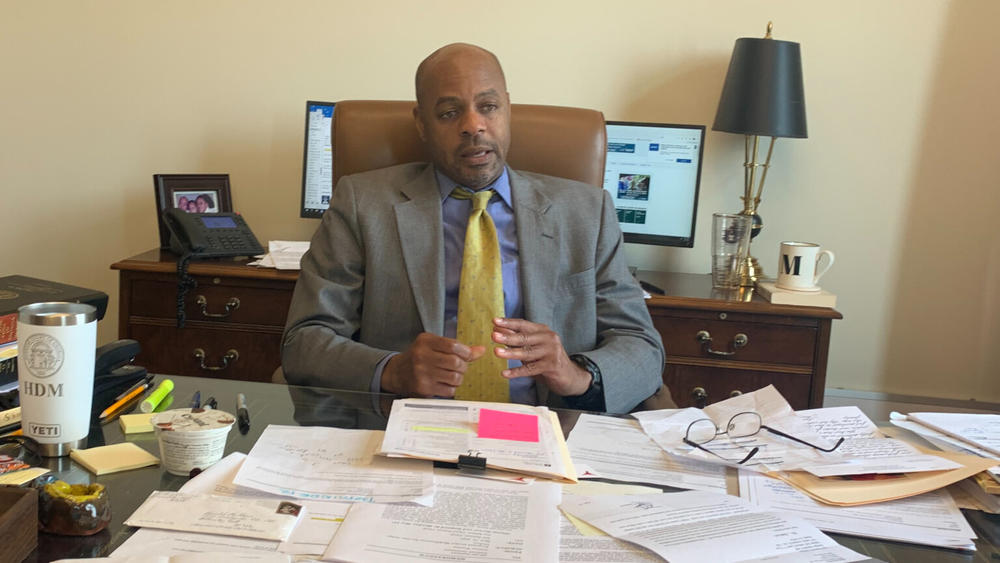
Caption
Georgia Supreme Court Chief Justice Harold Melton and fellow justices are set to return to the courtroom for the first in-person oral arguments since the shift to virtual hearings because of the COVID-19 pandemic.
Credit: Stanley Dunlap / Georgia Recorder

